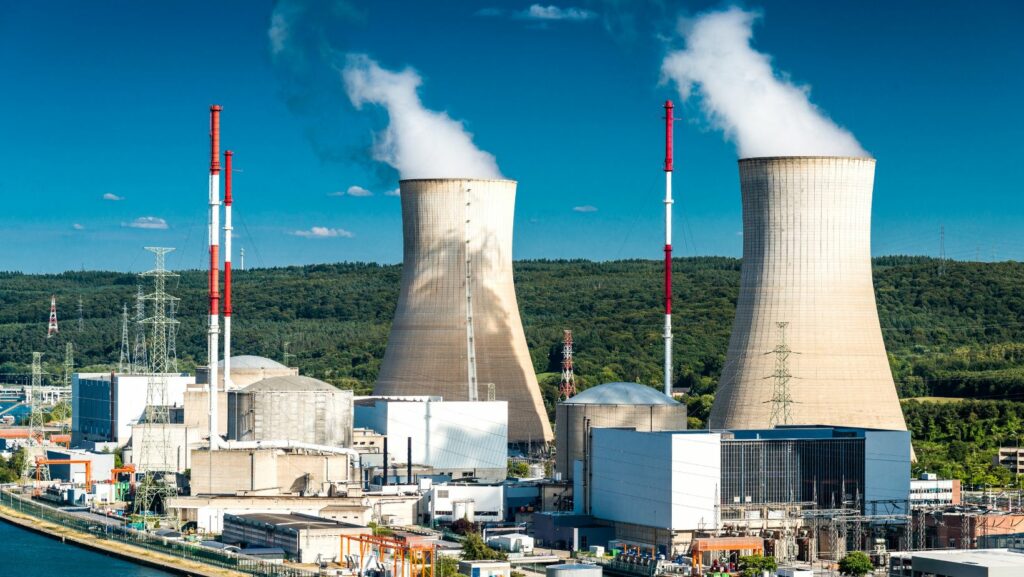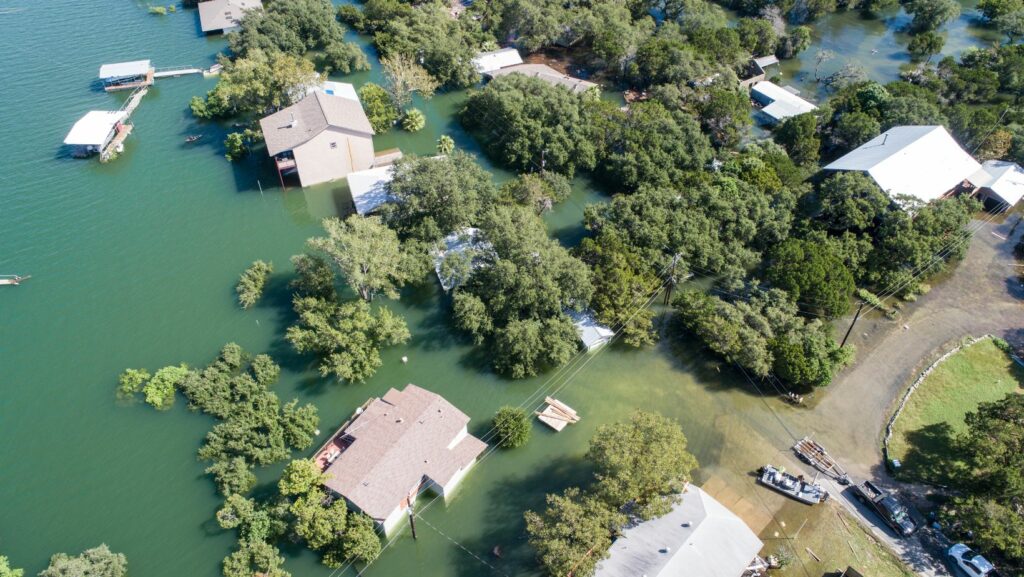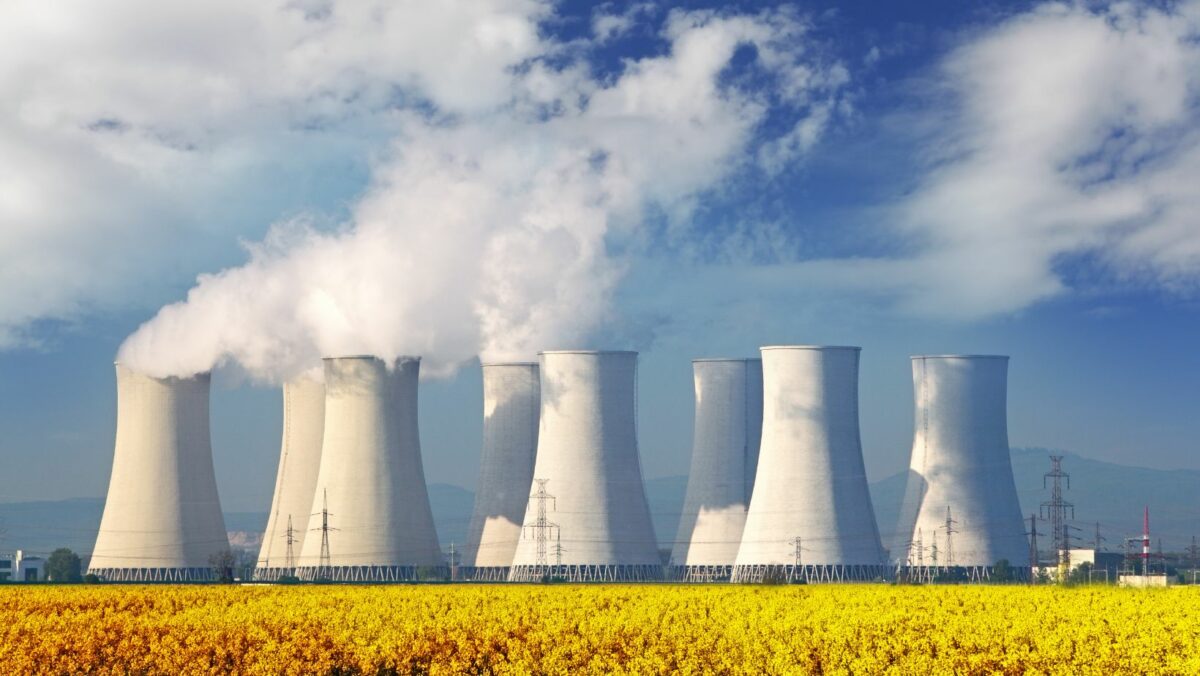In recent years, the role of nuclear power in climate change has been a hotly contested topic. Some argue that nuclear power is a necessary component of any strategy to mitigate climate change, while others contend that it presents too many risks and is not a viable option. In this paper, I will explore the pros and cons of nuclear power as a means of combating climate change.
The Greenhouse Effect
The greenhouse effect is a natural process that helps to regulate the Earth’s temperature. Certain gases in the atmosphere, such as carbon dioxide, water vapor, and methane, trap heat from the sun’s rays inside the Earth’s atmosphere. This trapped heat makes the Earth’s atmosphere warm, which in turn makes the Earth’s surface warm.
Without the greenhouse effect, the Earth would be too cold to support life as we know it. However, human activities are causing an increased level of greenhouse gases in the atmosphere, which is leading to an enhanced greenhouse effect and a rise in global temperatures. This is known as climate change.
Climate Change
Climate change is one of the most serious global challenges we face today. It is already causing damaging weather events around the world, and is predicted to lead to even more extreme weather, rising sea levels, and disruptions to food and water supplies.
Nuclear power plants do not produce greenhouse gases like carbon dioxide and methane, which are major contributors to climate change. In fact, nuclear power can help us reducing our emissions of greenhouse gases and combatting climate change.
However, nuclear power also has some drawbacks. It can be expensive to build nuclear power plants, and they can take a long time to get up and running. There is also the risk of nuclear accidents, which can have devastating consequences.
So there are pros and cons to using nuclear power as a way to combat climate change. What is important is that we take action now to reduce our emissions of greenhouse gases, before it is too late.
Can Nuclear Climate Change
Nuclear power can play a role in climate change mitigation by reducing emissions of greenhouse gases. While greenhouse gas emissions from nuclear power are much lower than those from fossil fuels, some people are concerned about the safety and waste management of nuclear power.
The Advantages Of Nuclear Power
Despite the concerns about nuclear accidents and the disposal of nuclear waste, nuclear power has several advantages over other forms of energy production.
Nuclear power plants produce no greenhouse gas emissions during operation, so they do not contribute to climate change.

Nuclear power is a very efficient way to generate electricity, with a typical plant generating about two thirds more electricity than a coal-fired plant per unit of fossil fuel used.
Nuclear power plants have very low emissions of sulphur dioxide and nitrogen oxides, which cause acid rain, and almost no particulate emissions.
Nuclear power is a versatile technology that can be used for applications other than generating electricity, such as desalination, district heating and cooling, and process heat for industry.
The Disadvantages Of Nuclear Power
Nuclear power is a controversial topic. Some people believe that it is a safe and efficient way to generate electricity, while others believe that it is too dangerous and should be banned altogether.
There are several disadvantages of nuclear power that must be considered. First, nuclear power plants are very expensive to build. They can cost billions of dollars, and this expense is often passed on to consumers in the form of higher electricity rates.
Second, nuclear power plants produce radioactive waste that must be carefully disposed of. This waste can remain radioactive for thousands of years, and there is no sure way to prevent it from leaking into the environment.
Third, nuclear accidents can be catastrophic. The most famous nuclear accident occurred at the Chernobyl power plant in Ukraine in 1986, when a reactor meltdown led to the release of large amounts of radiation into the atmosphere. The area around Chernobyl is still uninhabitable today, and hundreds of people were killed or exposed to harmful levels of radiation.
Fourth, nuclear proliferation is a concern. Countries that have nuclear power plants can use their reactors to produce weapons-grade uranium, which can then be used to build nuclear bombs. This has led to fears that terrorist groups could get their hands on nuclear weapons if they were able to steal or buy uranium from anuclear power plant.
These are just some of the disadvantages of nuclear power. It is important to consider all sides of the issue before making a decision about whether or not to support this type of energy generation.
The Future Of Nuclear Power
The future of nuclear power is shrouded in uncertainty. Currently, there are more than 450 nuclear reactors in operation around the world, supplying about 11 percent of the world’s electricity. But many of these reactors are nearing the end of their operational life, and there has been a slowdown in the construction of new reactors in recent years.
There are a number of factors that could affect the future of nuclear power, including economic factors, public opinion, and government policy.
In the past, nuclear power has generally been quite expensive to build and operate. But with advances in technology and increased experience in the industry, the cost of nuclear power has come down in recent years. If this trend continues, it could make nuclear power a more attractive option for countries looking to expand their electricity generation capacity.
Public opinion is another important factor that will affect the future of nuclear power. In many countries, there is strong opposition to nuclear power, due to concerns about safety and radioactive waste. If this opposition continues, it could limit the expansion of nuclear power around the world.

Government policy is also a key factor that will affect the future of nuclear power. In some countries (such as the United States), government support for nuclear power has been strong in recent years. But in other countries (such as Germany), government policy has been moving away from nuclear power in recent years. This shift could have a big impact on the future ofnuclear energy around the globe.
Conclusion
Nuclear power offers a low-carbon option for energy generation, but concerns over nuclear safety and waste management mean it is not a widely accepted technology. Despite this, nuclear power plants currently provide around 11 percent of the world’s electricity and the use of nuclear energy is growing in some countries.
As the world looks to reduce its reliance on fossil fuels and prevent further climate change, it is possible that nuclear power could play a role in helping to achieve these goals. However, any expansion of nuclear power would need to overcome significant challenges, including public opposition, cost and safety concerns.
